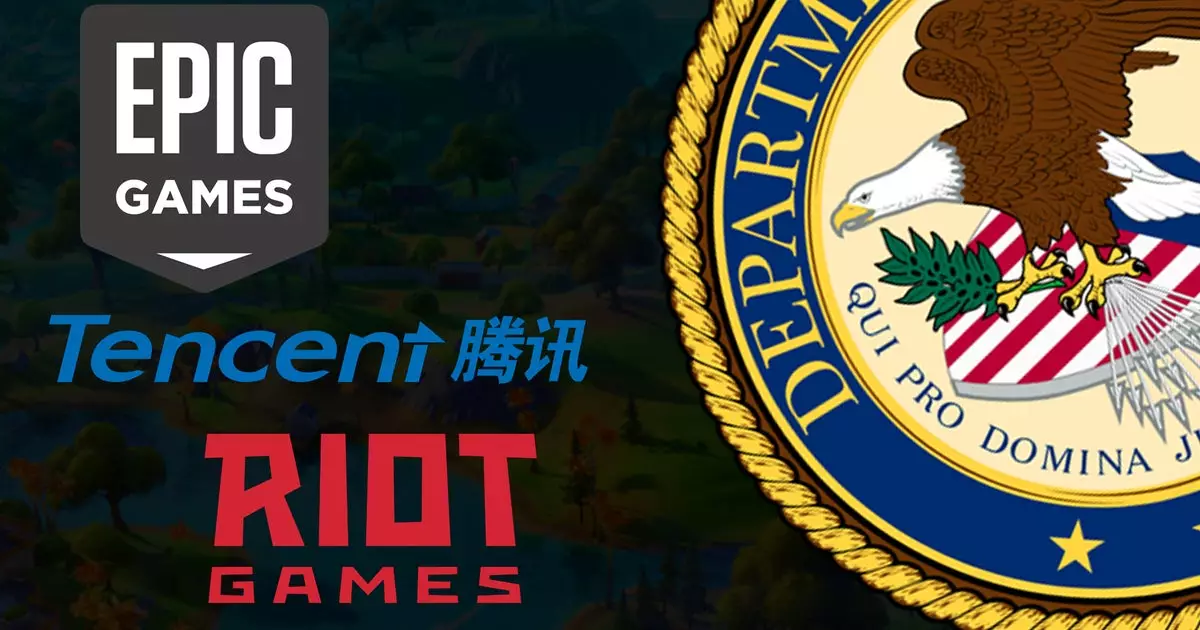The recent shifts within the board of directors at Epic Games highlight the ongoing scrutiny businesses face under antitrust laws in the United States. Following an investigation by the U.S. Department of Justice (DoJ), two directors, Ben Feder and David Wallerstein, resigned from their positions. Their resignations not only signify compliance with legal expectations but also underline a critical message about the governance and operational ethos of tech enterprises, especially in a fiercely competitive space like the gaming industry.
Antitrust laws are designed to foster fair competition and prevent monopolies that would disadvantage consumers and stifle innovation. The Clayton Act—a cornerstone of U.S. antitrust legislation—specifically prohibits individuals from holding board positions in competing companies. This legal framework aims to diminish the potential for conflicts of interest, ensuring that strategic decisions are made with the company’s best interests at heart, rather than being influenced by outside stakeholders with competing interests.
Epic Games, known for its monumental success with the Unreal Engine and Fortnite, is partially owned by Tencent, a massive Chinese conglomerate that also owns Riot Games. This relationship posed a potential conflict, as the involvement of Tencent in Epic’s boardroom might compromise the competitive integrity of both companies. The DoJ’s investigation and subsequent directive for resignation signal a critical acknowledgment that governance structures in tech companies must not only reflect business interests but also adhere to regulatory standards.
The departures of Feder and Wallerstein, who had longstanding ties with Tencent, underscore a vital shift in Epic’s governance. Feder, who previously held a significant role within Tencent, and Wallerstein, a senior executive who transitioned to a consulting position, embodied the intertwining of interests that the antitrust regulations seek to untangle. Their resignations were not just a response to an inquiry; they were a proactive strategy to reinforce Epic’s business integrity and adherence to legal norms.
In a statement, the DoJ indicated that while no company or individual has admitted liability concerning this inquiry, the necessity for Tencent to modify its shareholder agreement with Epic Games is a significant development. By doing so, it effectively curtails Tencent’s capability to influence board appointments, thereby fostering a clearer competitive landscape. The message is clear: businesses must be vigilant about governance practices to avoid running afoul of antitrust regulations.
The implications of this investigation and the consequential changes at Epic extend beyond the company itself. They serve as a stern warning to other tech entities that are navigating the complex waters of partnerships and ownership stakes. Values of transparency and compliance with antitrust laws should take precedence over potential growth strategies that might involve cross-board appointments with industry competitors.
This case exemplifies a broader trend where the convergence of large enterprises raises flags for regulators. For instance, the scrutiny of Microsoft’s acquisition of Activision Blizzard exemplifies concerns regarding market control and the potential reduction of competition. Each instance highlights the need for companies to reevaluate their practices and ensure that they do not inadvertently establish monopolistic tendencies that could harm other industry players and consumers alike.
As Epic Games navigates this transformative moment, it becomes crucial for other stakeholders in the gaming industry to reflect on their governance structures and strategic decisions. The focus on compliance with antitrust regulations should evolve from a legal obligation to a foundational business principle. Companies must prioritize creating an equitable and competitive environment, safeguarding the integrity and innovation essential for the industry’s overall health. In doing so, they not only adhere to legal requirements but also position themselves as responsible and forward-thinking leaders in a rapidly evolving market.

